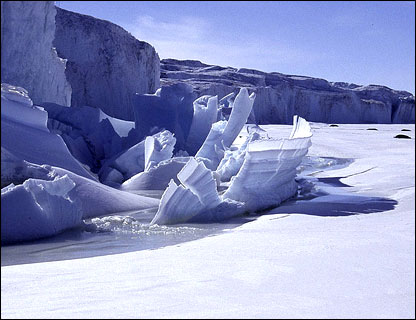 Maarten den Heijer
Maarten den Heijer
This is a response to Otto’s question whether the Security Council should label climate change a threat to international peace and security, allowing it to make use of its special powers under Chapter 7 of the UN Charter. In discussing that post, Nick and Otto seemed to agree that the Security Council should stick to its traditional task of responding to imminent security crises and only deal with issues like AIDS and climate change when they directly and demonstrably spur a threat to international peace. I very much liked the idea however and I would, without hesitation, answer the question with a twofold yes. Yes, climate change is a threat to international peace and security. And yes, the Security Council should therefore label it such a threat.
I think that, when interpreting the UN Charter and the role the Security Council was envisaged to play, it’s always important to remember that the Charter was written in the aftermath of the most destructive war in the history of mankind. The Security Council was set up to deal effectively with those issues which were considered to be the most threatening to humanity: war and everything which relates to war. Times change however and it may very well be that in the future other issues than nuclear bombs, terrorist death squads and warlike dictators will put our future existence in jeopardy. It is estimated that in five billion years the sun will collapse. Is that a matter within the scope of Article 39 of the Charter? And if yes, how long before the implosion will occur should the Security Council choose to act?
 Last week, the Intergovernmental Panel on Climate Change set up by the UN presented the second part of its report on global warming (see the webcast of the press conference here). It focuses on the effects of climate change on the human and natural environment. Although the findings are well-known (draughts, diseases, disappearing ecosystems, plagues, floods, etc.) the report again reminds us that to do nothing is not an option. Especially Africa will suffer dramatically from climate change. According to the report: ‘by 2020, between 75 and 250 million people in Africa are projected to be exposed to an increase of water stress. And agricultural production, including access to food, in many African countries and regions is projected to be severely compromised.’ Africa barely contributes to global warming, but is the most vulnerable continent to climate change. This is a burden ill-suited to be addressed by intergovernmental panels and treaties allowing for free rider behavior.
Last week, the Intergovernmental Panel on Climate Change set up by the UN presented the second part of its report on global warming (see the webcast of the press conference here). It focuses on the effects of climate change on the human and natural environment. Although the findings are well-known (draughts, diseases, disappearing ecosystems, plagues, floods, etc.) the report again reminds us that to do nothing is not an option. Especially Africa will suffer dramatically from climate change. According to the report: ‘by 2020, between 75 and 250 million people in Africa are projected to be exposed to an increase of water stress. And agricultural production, including access to food, in many African countries and regions is projected to be severely compromised.’ Africa barely contributes to global warming, but is the most vulnerable continent to climate change. This is a burden ill-suited to be addressed by intergovernmental panels and treaties allowing for free rider behavior.
There is increasing consensus that climate change will be the most important issue on planet earth’s agenda the coming century. Taking account of the potential destructive consequences of climate change – which undoubtedly will have repercussions for issues of peace and security – I think every effort to enforce global action should be supported. As long as the Security Council is the only body able to issue binding measures on UN members, climate change should be incorporated in its mandate. Of course, this does raise difficult questions, like Otto says. What kind of sanctions could the Council impose and on whom? But even here, what sounds more reasonable? An oil embargo on Iraq for reasons of international peace which predominantly targets the Iraqi population; or an embargo on exports of cars which do not meet certain emission standards for reasons of global action on climate change? Several studies have demonstrated that the instrument of economic sanctions has only rarely been successful in promoting peace and security (with South Africa as possible exception). But economic sanctions could very well be suitable to enforce environmental standards upon member states. In other words, Chapter VII of the UN Charter provides some excellent tools to combat climate change.
All this may turn out not to be politically feasible. But defaitism is a greater threat to international peace than wishful thinking.

Hi, Nick. I tend to agree with you that the Security Council is not the best place to solve global warming. But is it also the wrong place? The point I tried to make is that in labeling the Security Council an incompetent or powerless body and by drawing from that observation the conclusion that we should not put controversial issues on its agenda could also give rise to a self-fulfilling prophecy. Why not hail the UK’s effort to give climate change some more attention in yet another forum – regardless of the results?
With regard to global enforcement of environmental standards, I do not see how these standards are intrinsically different from labor standards, quality standards or authenticity standards which are used in all kinds of trade agreements. Introducing environmental standards in trade agreements will not suffice in solving global warming, but would you prefer for example doing away with restrictions on hardwood trade simply because it suffers from enforcement problems?